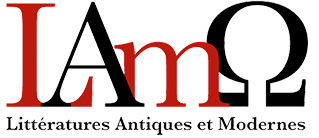In the last years the rewritings of Homeric epics and Trojan myth dating back to the Imperial Period and Late Antiquity have increasingly attracted scholarly interest. This is the case of Dares Phrygius and Dictys Cretensis, who claimed to be eyewitnesses of the Trojan war and more reliable interpreters of the events compared to the Homeric version. The recent proliferation of translations, commentaries, studies and philological enquiries fills a gap that finds no justification, especially since these works were well known and widely circulated over the centuries up to the Middle Ages, so as to make a major contribution to the collective imagination concerning the Trojan war as well as the characters who took part in it, starting from the figure of Aeneas.
The international meeting, to be held in Rome (in a conference hall of the CNR building, Piazzale Aldo Moro, 7) on 22nd April 2016, is meant to fit in such a ‘revival’ about Dares and Dictys : proposals are hereby solicited for papers on textual or literary criticism, including historical and anthropological enquiries, in order to shed light on some aspects of their works and/or of the wider cultural context in which they are framed.
9.30 : Apertura dei lavori / Meeting opening : Mario Lentano
9.45 : Dalla Grecia a Roma a Bisanzio : le tre vite di Ditti Cretese / From Greece to Rome to Byzantium : Dictys’ three lives
Chair : Emanuele Lelli (Università di Roma “La Sapienza”)
• Alessio Ruta (Università di Palermo), “Latine disserere”. I papiri greci di Ditti Cretese (P.Tebt. II 268, P.Oxy. XXXI 2539, P.Oxy. LXXIII 4943 - 4944) e la traduzione di Settimio : osservazioni su lingua letteraria, stile, lessico
• Elísabet Gómez Peinado (Universidad de Alicante), La « Ephemeris belli Troiani » griega de Dictis cretense y sus testimonios latino y bizantinos
10.45 : Pausa caffè / Coffee break
11.00 : Ditti e il contesto storico e culturale / Dictys and his historical and cultural context
Chair : Sergio Casali (Università di Roma “Tor Vergata”)
• Silvio Bär (University of Oslo), Fakers, liars, plagiarists ? Narrators and authorial voices in reworkings of the Trojan saga in the imperial period
• Valentin Décloquement (Université de Lille III), Le jeu du faire-vrai : lire Dictys de Crète à la lumière de la “paideia”
• Mireia Movellán Luis (Universidad Complutense de Madrid), Elements of internal cohesion in the « Ephemeris belli troiani »
12.30 : Pausa pranzo / Lunch break
14.30 : Modelli, motivi e personaggi / Models, motifs, characters
Chair : Eugenio Amato (Université de Nantes / Institut Universitaire de France)
• Graziana Brescia (Università di Foggia) & Mario Lentano (Università di Siena), Amore e guerra. Achille e Polissena in Ditti Cretese e Darete Frigio
• Giampiero Scafoglio (Université de Nantes / Seconda Università di Napoli), Antenore, il traditore
• Valentina Zanusso (Università di Roma “La Sapienza”), Ditti di Creta e il dramma attico
16.15 : Pausa caffè / Coffee break
16.30 : Ricezione / Reception
Chair : Riccardo Scarcia (Università di Roma “Tor Vergata”)
• Thomas Gärtner (Universität zu Köln), Die Kriegstagebücher von Dares Phrygius und Dictys Cretensis als Beispieleinerliterarisch „offenen“ Rezeptionsvorlage
• Valentina Prosperi (Università di Sassari), I cavalieri della tavola troiana : Ditti e Darete dal « Troiano a stampa » all’« Innamoramento di Orlando »
17.30 : Conclusioni / Conclusions : Giampiero Scafoglio








